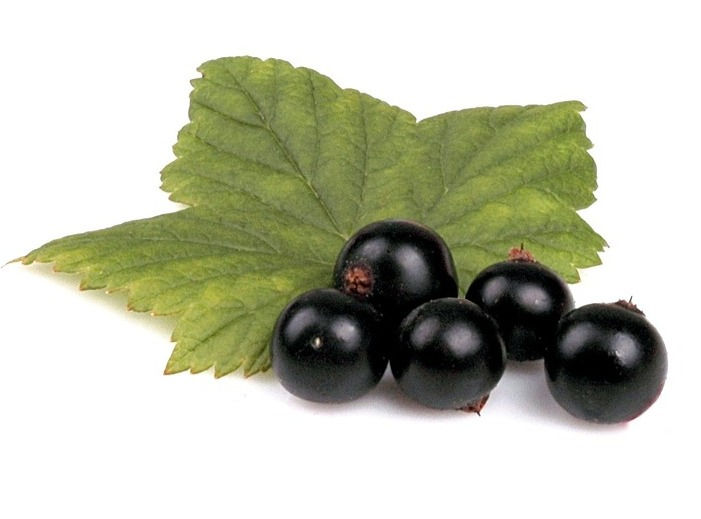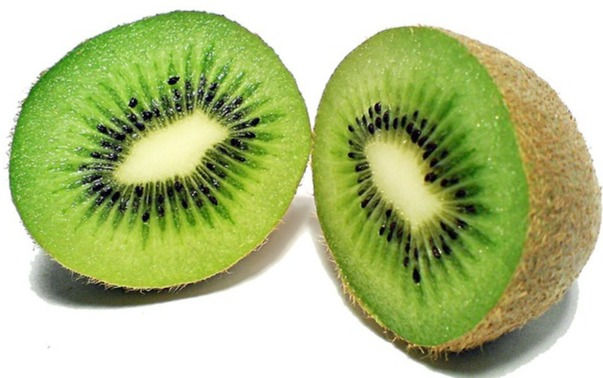15 Foods High in Vitamin C
- Lekita Davies
- May 17, 2023
- 5 min read
Vitamin C (ascorbic acid) is an extremely important vitamin that can only be obtained by food consumption in humans. It helps protect cells and keep them healthy, increase immunity, maintain healthy skin, blood vessels, bone and cartilage and improve wound healing (NHS, 2023). Adults typically need 40mg vitamin C per day, however dosages of up to 5g vitamin C per day have shown astounding benefits (Myhill, 2022).
When we think of vitamin c rich foods we typically think of oranges and citrus fruit. However, there are so many other fruits and vegetables with high vitamin c content, most of them with higher vitamin c content than oranges!
1. Red Pepper
100g of boiled red pepper contains approximately 170mg vitamin C, which is 2x the amount of vitamin C in 1 orange! Red peppers are also rich in vitamin A and beta-carotene which supports vision, eye health, skin cell health, wound healing and white blood cell growth. Additionally, red peppers contain iron, potassium, magnesium, vitamin B6 and folate (Mendoza et al. 2015).

2. Acerola Cherries
Although a forgotten fruit, 1/2 cup of acerola cherries contains 825mg of vitamin C! Cherries are also a great source of polyphenols and antioxidants. They protect against inflammation, infection and oxidative damage (Kelley et al. 2018).

3. Strawberries
1 cup of strawberries contains 97mg vitamin C! Strawberries also contain manganese, flavonoids, folate and other antioxidants. Recent studies have proved the beneficial effect of strawberries when eaten regularly for cardiovascular and general health (Afrin et al. 2016).

4. Sweet Yellow Peppers
1 large yellow pepper contains a whopping 342mg vitamin C. The vitamin c content of peppers increases the more they mature, therefore yellow peppers contain twice the amount of vitamin c compared to green peppers!

5. Black currants
1/2 cup of black currants contains 102mg vitamin C. Blackcurrants are also rich in antioxidants which help prevent oxidative damage and inflammation. Eating 1 cup of black currants per day may reduce your risk of heart disease, cancer and neurodegenerative disease (Aune et al. 2018).

6. Cantaloupe
1 cup of cantaloupe contains 17.4mg vitamin C! This delicious fruit is also packed with vitamin A and fibre. The high water content of cantaloupe helps ensure adequate hydration and kidney health. Cantaloupe is also high in potassium which is necessary for heart, muscle and blood pressure health (Asaduzzaman et al. 2018).

7. Kale
100g of kale contains roughly 93mg of vitamin C! Kale is also rich in vitamin K, an important mineral for bone health and blood clotting (DiNicolantonio et al. 2015). Additionally, kale contains lutein and zeaxanthin, carotenoids that are important for eye health (Aal et al. 2013).

8. Kiwis
1 medium kiwi contains 56mg of vitamin C! Recent studies have shown that kiwi consumption may benefit the immune system and increase white blood cell activity (Bozonet et al. 2015). Additionally, kiwis have an inhibitory effect on blood platelets and may reduce the risk of blood clots when consumed regularly (Dizdarevic et al. 2014).

9. Parsley
4 tbsp of fresh parsley contains 20mg of vitamin C! Parsley is also a potent antioxidant and great source of vitamin K. Parsley has shown great promise in reducing inflammation and preventing oxidative damage from harsh environmental toxins (Mahmood et al. 2014).

10. Brussels Sprouts
Although you would never think it, 1 cup of cooked Brussels sprouts contains 97mg vitamin C! Brussels sprouts are also rich in fibre, vitamin K, vitamin B9, vitamin A, potassium and manganese. Recent studies have shown significant improvement in osteoporosis symptoms with high vitamin C consumption (Malmir et al. 2018).

11. Broccoli
1 cup of cooked broccoli contains 102mg of vitamin C! Broccoli is also rich in vitamin B6, vitamin K, magnesium, iron, calcium and fibre. According to recent studies, broccoli shows cancer protective properties due to its high antioxidant and isothiocyanate content (Kim & Park, 2009).

12. Oranges
And now for the fruit that everyone associates with vitamin C.. oranges. Contrary to belief, 1 medium orange contains 83mg of vitamin c, which is surprisingly a lot less than what we get from 1 medium sized red/yellow pepper! So what I'm trying to say is, when you come down with a cold or illness, get those peppers AND oranges in.

13. Lemons
1 medium sized lemon contains approximately 45mg of vitamin C. Due to their high antioxidant properties and ability to prevent other foods browning, lemons where given to sailors during the 1700s to prevent scurvy!

14. Lychee
A 100g serving of lychee contains 71mg of vitamin C! Lychees are also high in quercetin, a plant flavanol with anti-histamine, anti-inflammatory and antioxidant properties (Li et al. 2016). Lychees contain iron, copper, manganese, magnesium and phosphorus which contributes to heart and bone health (Zhao et al. 2020).

15. Papayas
1 cup of papaya contains approximately 88mg of vitamin C! Recent studies have shown improvement of Alzheimers symptoms with daily papaya consumption due to the vitamin C and antioxidant content (Barbagallo et al. 2015).

References
Aal, E.S.M.A. Akhtar, H. Zaheer, K. et al. (2013). 'Dietary Sources of Lutein and Zeaxanthin Carotenoids and Their Role in Eye Health', Nutrients, 5 (4), pp.1169-1185.
Afrin, S. Gasparrini, M. Hernandez, T.Y.F. et al. (2016). 'Promising Health Benefits of the Strawberry: A Focus on Clinical Studies', Journal of Agricultural and Food Chemistry, 64 (22), pp.4435-4449.
Asaduzzaman, M. Talukder, R. Tanaka, H. et al. (2018). 'Production of Low-Potassium Content Melon Through Hydroponic Nutrient Management Using Perlite Substance', Frontiers in Plant Science, 9 (1), pp.1382-1388.
Aune, D. Keum, N. Giovannucci, E. et al. (2018). 'Dietary Intake and Blood Concentrations of Antioxidants and the Risk of Cardiovascular Disease, Total Cancer, and All-Cause Mortality: A Systematic Review and Dose-Response Meta-Analysis of Prospective Studies', The American Journal of Clinical Nutrition, 108 (5), pp.1069-1091.
Barbagallo, M. Marotta, F. Dominguez, L.J. (2015). 'Oxidative Stress in Patients with Alzheimers Disease: Effect of Extracts of Fermented Papaya Powder', Mediators of Inflammation, 1 (2).
Bozonet, S.M. Carr, A.C. Pullar, J.M. et al. (2015). 'Enhanced Human Neutrophil Vitamin C Status, Chemotaxis and Oxidant Generation Following Dietary Supplementation with Vitamin C Rich SunGold Kiwifruit', Nutrients, 7 (4), pp. 2574-2588.
DiNicolantonio, J.J. Bhutani, J. O'Keefe, J.H. (2015). 'The Health Benefits of Vitamin K", Openheart, 2 (1), pp.300-305.
Dizdarevic, L.L. Biswas, D. Uddin, M.D.M. et al. (2014). 'Inhibitory Effects of Kiwifruit Extract on Human Platelet Aggregation and Plasma Angiotensin - Converting Enzyme Activity', Platelets, 25 (8), pp.567-575.
Kelley, D.S. Adkins, Y. Laugero, K.D. (2018). 'A Review of the Health Benefits of Cherries', Nutrients, 10 (3), pp.368-400.
Kim, M.K. & Park, J.H.Y. (2009). 'Conference on "Multidisciplinary Approaches to Nutritional Problems". Symposium on "Nutrition and Health". Cruciferous Vegetables Intake and the Risk of Human Cancer: Epidemiological Evidence', Proceedings of the Nutrition Society, 68 (1), pp.103-110.
Li, Y. Yao, J. Han, C. et al. (2016). 'Quercetin, Inflammation and Immunity', Nutrients, 8 (3), pp.167-170.
Mahmood, S. Hussain, S. Malik, F. (2014). 'Critique of Medicinal Conspicuousness of Parsley (Petroselinum Crispum): A Culinary Herb of Mediterranean Region', Pakistan Journal of Pharmaceutical Sciences, 27 (1), pp.193-202.
Malmir, H. Bidar, S.S. Djafarian, K. (2018). 'Vitamin C Intake in Relation to Bone Mineral Density and Risk of Hip Fracture and Osteoporosis: A Systematic Review and Meta-Analysis of Observational Studies', British Journal of Nutrition, 119 (8), pp.847-858.
Mendoza, C.C. Sanchez, E. Marquez, E.M. et al. (2015). 'Bioactive Compounds and Antioxidant Activity in Different Grafted Varieties of Bell Pepper', Antioxidants, 4 (2), pp.427-446.
Myhill, S. (2022). Vitamin C- Learn To Use This Vital Tool Well. [Online]. Available at: https://drmyhill.co.uk/wiki/Vitamin_C_-_learn_to_use_this_vital_tool_well_%E2%80%93_the_key_is_getting_the_dose_right (Accessed: 15th May 2023).
NHS. (2023). Vitamin C. [Online]. Available at: https://www.nhs.uk/conditions/vitamins-and-minerals/vitamin-c/ (Accessed: 16th May 2023).
Zhao, L. Wang, K. Wang, K. et al. (2020). 'Nutrient Components, Health Benefits, and Safety of Litchi (Litchi Chinensis Sonn.): A Review', Comprehensive Reviews in Food Science and Food Safety, 19 (4), pp.2139-2163.








Comments